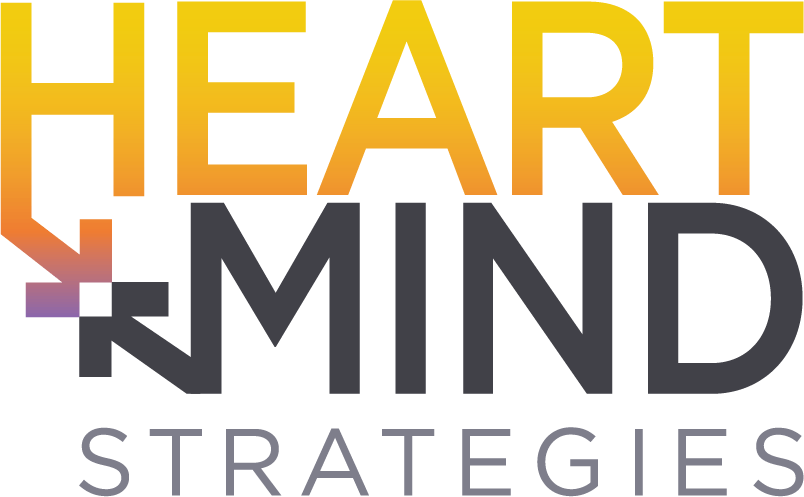By Katie Plocheck Hunt
It is not new news that we live in a world where people feel increasingly detached, disconnected, restless, empty and anxious. The term “languishing” has been appropriately dubbed by those attempting to capture the acute malaise spun by the pandemic. But while this collective despondence has no doubt been exacerbated by the last year and a half, a persistent and pervasive disquietude has been at play much longer. Several factors contribute to this trend, but it is easy to zero in on one in particular: the rapid growth and use of consumer technology over the last two decades.
From falling asleep to the dim light of the iPhone, to browsing emails before the first sip of morning coffee; from placing headphones into our ears as we head into nature to scrolling aimlessly through social media at stoplights—technology permeates nearly every aspect of our lives. But while the line between people and tech continues to blur, the fragile thread between people and their actual selves has begun to fray.
The Lost Connection
At its best, technology enhances our experiences: it connects us to resources, knowledge and community. At its worst, it displaces us from our own experience: our attention spans are shortening; our ability to be present significantly diminished. We spend more time “performing” our identities than we do inhabiting them. We consume more and are also increasingly consumed. The result is no doubt one central driver of our current mental health epidemic.

Technology’s reach and consumption is not only a key contributor of this reality, it has (ironically) also played a powerful role in catapulting the mental health topic to the forefront of American society. People everywhere are more willing to be open about their own mental health experiences and are invited to “come as they are”; many feel more seen and heard. Yet as much as we might claim to hold space for those suffering, a large part of our response has culminated in a veritable industry centered on wellness and betterment. Calm, a meditation app, has achieved over 100 million downloads since its inception. In 2020, the self-help book market rapidly approached 1 billion in sales. Countless other apps, programs, articles and podcasts have sprung into existence, illustrating how to overcome the hurdles of mental health, solidifying one thing as true: Mental struggle is not simply something we are more open about, it is something we strive, exhaustively, to combat. We have, intentionally or not, created a singular and unflagging focus on misery’s much brighter cousin: happiness.
It appears at first glance that we have built a culture of both transparency and inclusion. We seem ready and eager to embrace the darker side of the human experience. But as we look deeper, we can see that “c’mon c’mon get happy” is having a true tête-à-tête moment with “take me as I am.” We exalt happiness as our singular goalpost, but within this techno-ecosystem, we act more like passengers in the self-driving car—automatons looking to get to our next destination—than we do as drivers of our own experience. We might be promised speedy delivery, but we are at a loss as to how to show up, genuinely, day after day along the journey. Much of the impact of technology is clear: it has both separated us from ourselves and played a critical role in productizing happiness.
The Human Connection
We want to be more happy, this is true. But does such a narrow focus on happiness really open us up to the authenticity we so desire? And is true self-actualization even possible in today’s “there’s an app for that” culture? Today’s world is shouting “meet me where I am” yet even as we claim to do so, we are dismissing, diminishing, and perhaps worst of all saying, “I will take you as you are, but you’d be a lot better if you were happy.” As an arguably de-centered generation, the path to authenticity lies in our power to connect with one another and not only show up as we are, but to have that space genuinely held for us. Ultimately, we need to reinfuse the human within the technological experiment.

Only when we re-inhabit our real, lived lives in a way that technology—and the culture it spins—often prohibits, can we begin to remember what it feels like to look inward instead of out; to feel truly embodied as opposed to relying on the gaze of others. Mindfulness, an ancient offshoot of the modern happiness industry, implores and enables people to be more present. This presence is the very thing worth striving for, but it would serve us well to re-package this pursuit—and the happiness movement that surrounds it—as a call to genuinely “being” vs. becoming; as finding comfort where we are instead of constantly clawing our way towards betterment.
How can we help people re-build the bridge back to themselves within a tech-centered reality that is certain to thrive into perpetuity? And, what role do brands and organizations need to play in this pursuit? There a few imperatives for helping people feel more integrated and centered:
- Show up genuinely as you are, whether that is being more transparent about mistakes, a bad day, or embracing the inevitable “messiness” of reality —people need to see others modeling authenticity;
- Find more ways to connect both on- and off-line and create moments of real human connection that build human attunement, empathy and presence;
- Finally, hold space for people to feel seen and heard; do not pivot quickly to the solution. This permission to “feel your feelings” will help people find the pathway back to their authentic nature and feel increasingly present in their own experiences.

About the Author
Katie Plocheck Hunt is a Senior Strategy Director at Heart+Mind Strategies, where she works to deploy thoughtful marketing, branding and organizational thinking around clients’ challenges. Her portfolio includes clients like the Gates Foundation, Google, Boeing, and Johnson & Johnson.
In addition to her work experience, Katie holds a Master’s degree in Sociocultural Anthropology from Brandeis University where she focused on identity theory and honed her ability to not only see complex narratives at play, but to understand how those “stories” can be applied to client business. Today, she is passionate about focusing on human needs in the business landscape, and weaving together all the dynamic systems at play in our world to help clients.
